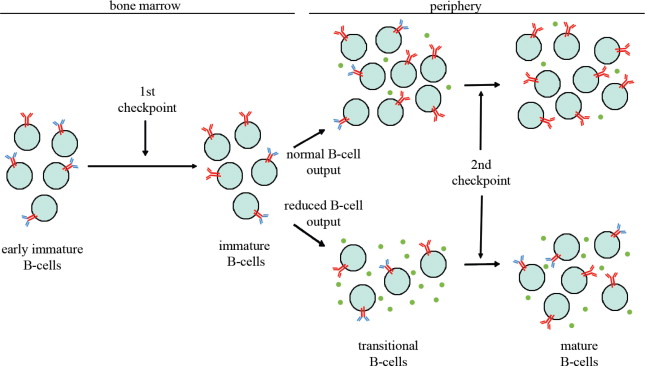Omenn syndrome is a rare, inherited immunodeficiency disorder characterized by severe combined immunodeficiency (SCID) with additional features. It is named after Gilbert Omenn, who first described the condition in 1965. This syndrome is a type of SCID that involves abnormalities in the immune system, leading to recurrent infections, skin rashes, and other complications.
Symptoms
The symptoms of Omenn syndrome usually appear within the first few weeks or months of life and include:
- Severe Recurrent Infections: Due to the profound immunodeficiency, affected infants suffer from persistent and severe infections that can be life-threatening.
- Erythroderma: A widespread red rash that covers much of the body.
- Lymphadenopathy: Swollen lymph nodes.
- Hepatosplenomegaly: Enlarged liver and spleen.
- Chronic Diarrhea: Persistent diarrhea that can lead to severe weight loss and malnutrition.
- Failure to Thrive: Poor growth and development in infants.
- Eosinophilia: Elevated levels of eosinophils, a type of white blood cell, in the blood.
- Elevated IgE Levels: High levels of immunoglobulin E (IgE).
Causes
Omenn syndrome is caused by mutations in genes that are critical for the development and function of the immune system, particularly:
- RAG1 and RAG2 Genes: Mutations in these genes, which are essential for the recombination of T-cell and B-cell receptors, are the most common cause.
- Other Genes: Mutations in other genes involved in the immune system, such as IL7R, DCLRE1C (Artemis), and others, can also result in Omenn syndrome.
These genetic mutations lead to the production of non-functional or partially functional immune cells, resulting in the severe immunodeficiency observed in patients with Omenn syndrome.
Treatment
Treatment of Omenn syndrome focuses on managing infections and attempting to restore the immune function:
- Bone Marrow Transplantation (BMT): This is the only curative treatment, involving the transplantation of hematopoietic stem cells from a compatible donor to reconstitute the patient’s immune system.
- Antibiotics and Antiviral Medications: Used to treat and prevent infections.
- Intravenous Immunoglobulin (IVIG): Provides passive immunity to help protect against infections.
- Nutritional Support: Necessary to manage failure to thrive and malnutrition.
- Supportive Care: Including treatment for skin rashes and other symptoms.
Prevention
Prevention is challenging because it is a genetic disorder. However, certain steps can be taken:
- Genetic Counseling: For families with a history of Omenn syndrome or SCID, genetic counseling can help assess the risk of having affected children.
- Prenatal Testing: In families known to carry mutations associated with Omenn syndrome, prenatal genetic testing can determine if the fetus is affected.
- Newborn Screening: Some regions include SCID in their newborn screening programs, allowing for early detection and intervention.
While Omenn syndrome is a severe and life-threatening condition, advances in medical care, particularly bone marrow transplantation, offer hope for affected individuals. Early diagnosis and intervention are crucial to improve outcomes.

































